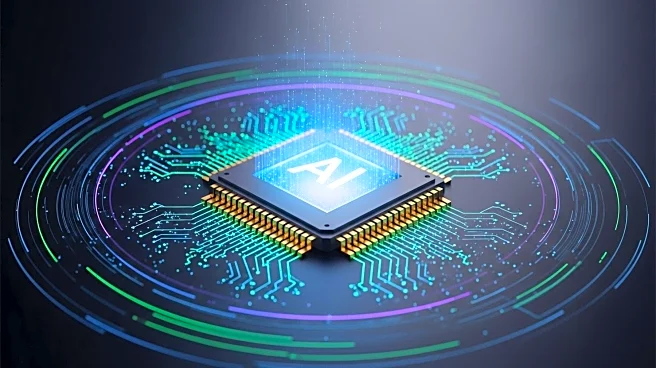What's Happening?
John Chambers, former CEO of Cisco Systems, sees parallels between the current AI boom and the internet's rise in the 1990s. Chambers, now a venture capitalist, notes AI's rapid development and market impact, predicting significant economic shifts. He warns of potential job losses due to AI's speed, emphasizing the need for educational reform to prepare for new job markets. Chambers also discusses geopolitical concerns, particularly regarding China's competitive stance against the U.S. in technology and economics.
Why It's Important?
AI's rapid advancement could reshape industries, leading to increased productivity but also significant job displacement. Companies and workers must adapt to new technologies and market demands. The U.S. faces strategic challenges in maintaining technological leadership, especially against China's aggressive expansion. Chambers' insights highlight the need for proactive policies to manage AI's impact on the economy and workforce.
What's Next?
As AI continues to evolve, businesses will need to invest in innovation and workforce training to remain competitive. Policymakers may consider regulations to balance technological growth with societal impacts. The U.S. must navigate international relations, particularly with China, to ensure economic stability and security. Chambers' predictions suggest a period of adjustment as industries and governments adapt to AI's transformative effects.
Beyond the Headlines
The AI boom raises ethical and social questions about technology's role in society. Issues such as privacy, security, and equity will become increasingly important as AI integrates into daily life. The shift may also influence cultural perceptions of technology and its benefits versus risks. Long-term, AI could redefine economic structures and global power dynamics.










